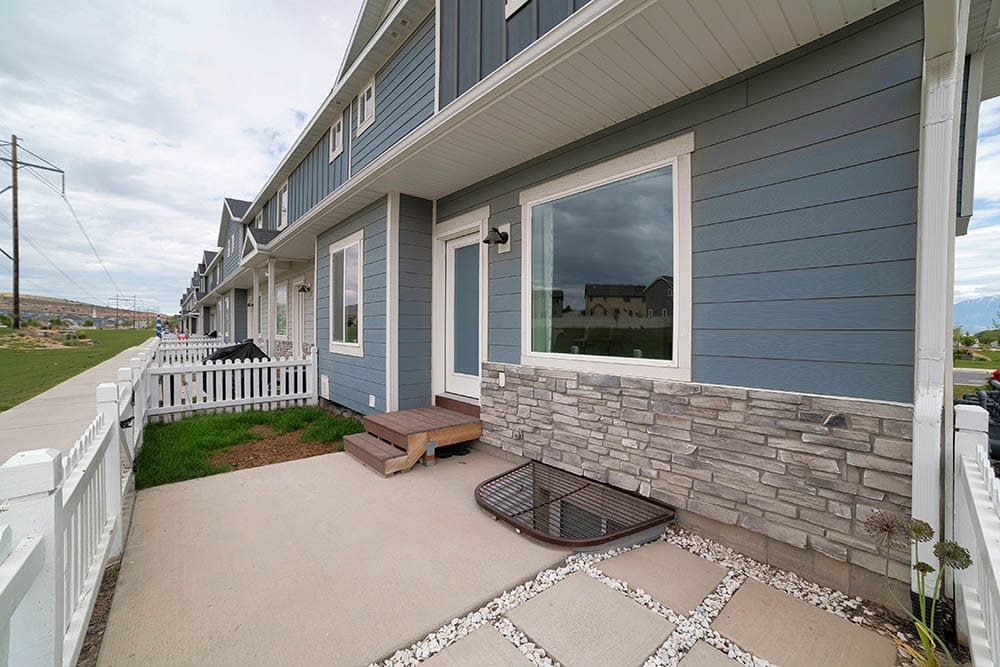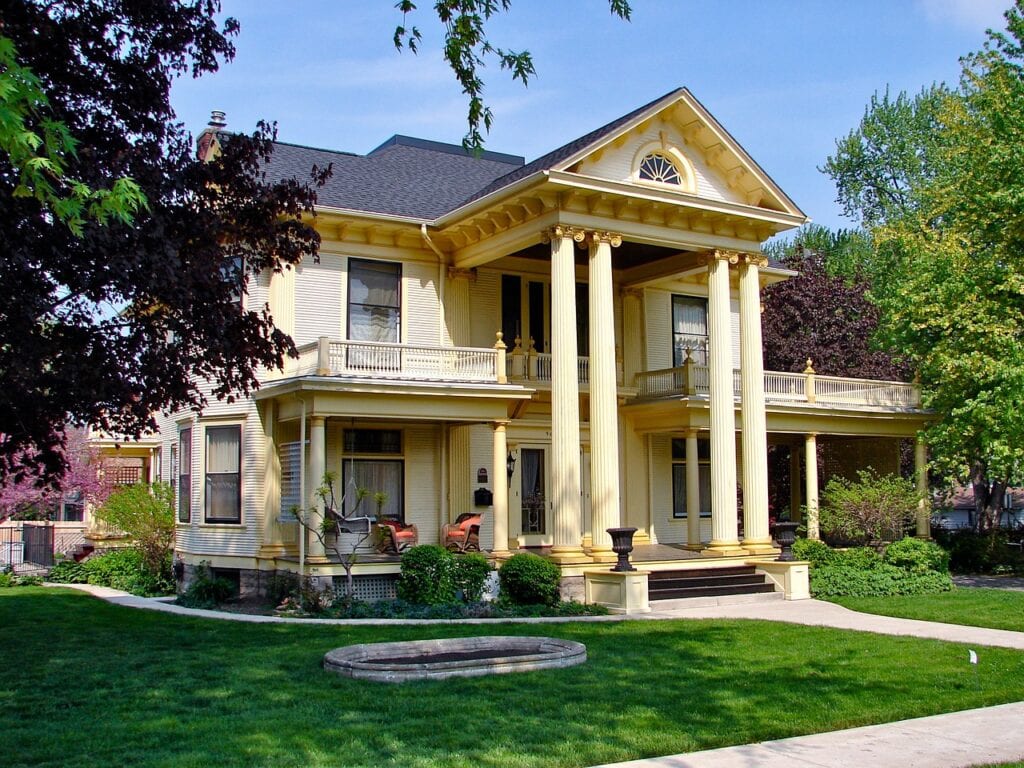Second Home vs. Investment Property: How Are They Different?
-
- Last updated:

Whether a family vacation home or a passive income generator to help you build your wealth, a second property presents a wealth of opportunity for capable buyers. But classifying it as a second home or an investment property can significantly impact how you can use the residence and how much you pay for it.
Choosing the wrong classification for your new property could cause you to unnecessarily waste money, face conflict with your lender, or get into legal trouble with the IRS. Learn the essential differences between a second home and an investment property to get the most benefit out of your new place.

Second Home

A second home is a one-unit property in which you plan to live for at least part of the year, such as a vacation home or one you use for work. A person can have multiple second homes along with their primary residence. In many cases, it can be a rental property for up to 180 days of the year if desired, but in the eyes of the IRS, it can only be a second home if you meet these requirements:
- You live in it for more than 14 days during the year
- You live in it for at least 10% of the time you rent it to others
Rental income won’t need reporting on your taxes if you rent the property for less than 14 days a year. While many lenders have relaxed their rules around renting second homes in the Airbnb age, some loans will still not allow you to rent the property.
Lenders will typically have additional location requirements for the property to qualify as a second home. It may need to be a minimum distance (e.g., 50 miles) from the primary residence or in an agreed-upon vacation or resort area. Under Fannie Mae’s terms, a second home cannot be a full-time rental or part of a timeshare arrangement, nor can it be under the control of a separate property management firm.
Qualifying for a Second Home
Second homes and investment properties are riskier for lenders than primary residences. The logic is that, in times of stress, a borrower will put their resources toward a primary home and default on other properties first.
Lenders generally require higher down payments (usually at least 10% down) and assess higher interest rates on loans for second homes to account for the increased chance of default or foreclosure. They’ll also have stricter standards for your debt-to-income ratio and credit score.

How It Affects Taxes
A second home used strictly as a vacation home and part-time residence qualifies for the same mortgage interest tax deduction as primary residences. You can make deductions on interest for up to $750,000 worth of your overall mortgage debt. Property taxes and mortgage insurance are also deductible.
Rental income from a second home is only taxable if you rent it for more than 14 days a year. In such instances, you can deduct mortgage interest from your reported rental income and rental expenses, such as insurance and utilities. Part-time second home rental can get tricky at tax time, as you’ll have to divide costs between the property’s time as a rental and its time as a second home for personal use.
Notably, the IRS’s definition of your home as a second home or investment property is not intrinsically related to how the lender defines the home. While the IRS sets rules for how you file taxes based on personal use and renter occupancy, your ability to rent the home is worked out with the lender.
Treating a second home as an investment property and failing to follow the rules of the mortgage could result in fraud charges and fines. Lenders can make unscheduled visits to your home and investigate the property to determine if you are using it as intended. They will foreclose the loan if they find you lied in your mortgage application.
- Mortgage rates similar to primary residence rates
- Requires lower down payments than investment properties
- Easier to qualify for second homes than investment properties
- Rental income is tax-free if you rent the second home for no more than 14 days a year
- FHA and VA loans are not available for second homes
- Stricter DTI and credit score requirements for second homes than primary homes
- Higher down payment requirements for second homes than for primary homes

Investment Property

An investment property is a secondary residence consisting of one or multiple units that you may or may not occupy at any time during the year. It primarily acts to generate income as a rental or as a home you plan to flip and sell for a profit. You can rent the house on short or long-term leases, allowing a third party to occupy and claim the home as their residence for extended periods. Unlike second homes, there aren’t geographical requirements for a residence to qualify as an investment property.
Qualifying for an Investment Property
A mortgage for an investment property is generally more challenging to obtain than loans for primary or secondary residences. Most lenders view investments as the lowest on the priority chain for homeowners. Credit scores and DTI ratios have higher thresholds, and down payments are usually at least 20–25% of the mortgage value. Interest rates will also be higher for an investment property than for a primary or secondary home.
Mortgage companies will also have higher reserve requirements for investment properties than residences. Reserves are leftover assets after down payments and closing costs that can go toward mortgage payments. For instance, a lender may require you to have at least 6 months of reserves to qualify for an investment property loan but only 2 months for a second home.
Qualifying for an investment property mortgage is more challenging, and owning it is more expensive from a monthly mortgage perspective. But compared to a second home, you may have more to work with when reporting your debt-to-income for an investment property loan.
Many lenders let you use up to 75% of your expected rental income in the loan application, which could be crucial in showing that you have the necessary funds to afford the mortgage. They’ll require an additional appraisal at your expense to determine reasonable rental rates, and you’ll typically need to prove that you have experience managing rentals.
You can also use FHA and VA loans for multi-unit investment properties. These loans are only available if you intend to occupy one of the units as a primary residence, but the others can be full-time rentals.

How It Affects Taxes
Investment property owners have numerous tax write-offs available. You can deduct mortgage interest from your rental income alongside property taxes, maintenance costs, utility bills, material and labor costs for upkeep, advertising, and insurance. Deductions are also available for depreciation, though you’ll have to make up for it upon the sale of the property through depreciation recapture.
- Allows for full-time rental of a property
- Fewer geographical restrictions than second homes
- Does not have occupancy requirements
- Offers numerous tax deductions for rental expenses
- Projected rental income can help qualify for a loan
- Requires higher credit scores and incomes to qualify for loans
- Higher mortgage rates and down payments than residential loans

Conclusion
Understanding the differences and implications of a second home and an investment property is crucial before applying for a mortgage on a new residence. Both have unique advantages. One offers more renting flexibility and tax deductions, and the other provides better mortgage rates. Talking with a tax specialist and being honest with your lender will ensure you make the best decision based on your goals for the property.
See also:
- Is It Cheaper to Buy a Prefab Home or Build?
- Home Inspection Vs. Appraisal: What’s The Difference?
- How Do Second Mortgages Work? The Interesting Answer!
Contents


